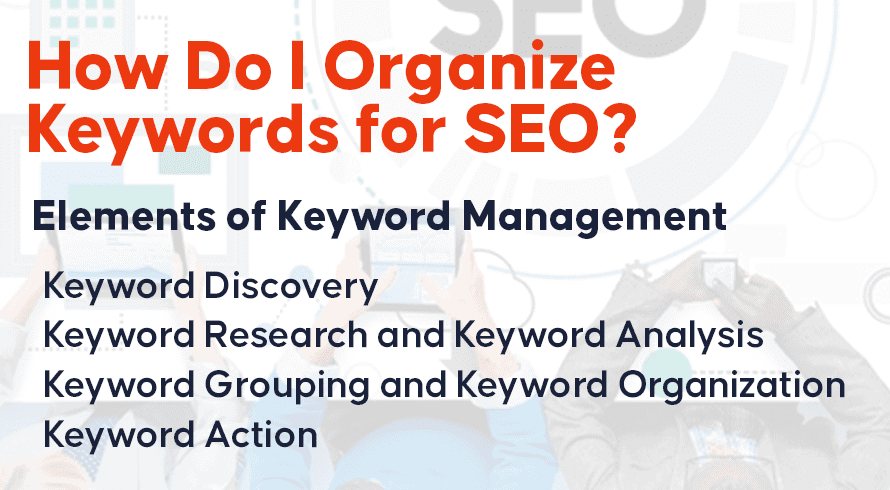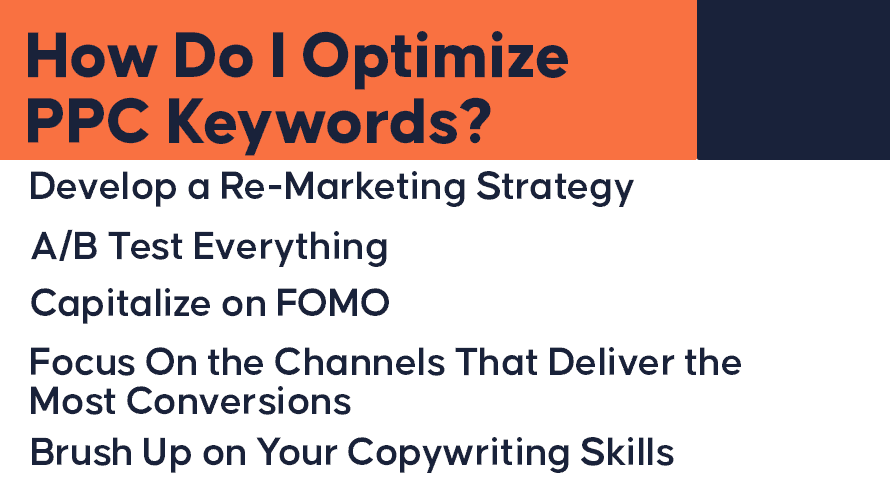Inquivix HQ
1-903, 18 Eonju-ro 146-gil,
Gangnam-gu, Seoul, Korea
06057

Keywords management is an important aspect of online marketing and SEO. When you have the right set of keywords, you will achieve better results with your PPC campaigns. Researching keywords is important but keeping track of the high-value keywords is also useful. When you are researching keywords, you should manage them to ensure that they give you the best value.
There are several methods for keyword management. All of them include organizing them in a manner that makes referencing easier. You can sort the keywords based on various factors and metrics to ensure that you get the best use out of them. This can be done manually or using keyword management tools. Proper keyword management sets the difference between successful campaigns and those that don’t get the full return on investments. With a good keyword management strategy, you can achieve a lot more in the same amount of time and have a plan to reuse existing keywords in upcoming campaigns.
How Do I Organize Keywords Management for SEO?

Keeping your keywords organized will help you manage them easily. You can use several methods to keep your keywords organized for SEO. The easiest way is to have a spreadsheet that will act as your reference. In the spreadsheet, you can add additional information, such as the priority and value of your keywords.
You can also keep your keywords sorted according to their potential value on the internet and how much other companies are bidding on them. This makes you more organized and aware of all the high-value keywords. You can use keyword groups to organize the relevant keywords easily.
Elements of Keyword Management
Keyword management has several elements. First is keyword discovery where you find the keywords related to your organization. The second is conducting keyword research and analyzing to identify useful keywords. Then comes the organizing and grouping of them for easy reference. Lastly, take action for those keyword opportunities. Let’s take a look at them in detail.
Keyword Discovery
This is the process of looking for the keywords used to find your website. You can use tools like Google Analytics to find out which search queries lead traffic to your website. Learning what your target audience is searching for will guide you to identify potential business opportunities.
Keyword Research and Keyword Analysis
Which keywords are the most productive and have the most promise? This is where you determine the best keywords.
Keyword Grouping and Keyword Organization
Organize your keywords into specific keyword groups and ranks that determine the value of each cluster of keywords. This will help you figure out how many keywords you can use to drive your campaigns.
Keyword Action
It is taking action based on the previous steps. This could be preparing content based on the most promising keyword groupings or updating your keywords list to reflect the observations that you have made.
What Keywords Should I Use for SEO?

SEO keywords should blend in well with the rest of your content. They should also be high ranking in terms of organic traffic and the words that internet users are likely to use when looking for your website. Search volume of your potential keywords is important. You can use low search volume keywords in content like blog posts to increase your visibility in search engines. Your SEO campaign can use keyword tools to have a better keyword management solution.
How Do I Optimize PPC Keywords?
Pay-per-click (PPC) campaigns are usually focused on specific keywords. There are a few steps you can take to optimize them. Your keyword list should not stay static. Your list can be improved by adding new keywords and ensuring that it is always updated. Have a re-marketing strategy in place to ensure that follow-up visits to your websites can turn into a purchase. Use A/B testing for all the aspects of your campaigns and determine what keywords have the highest impact in terms of bringing results.
Update Your Keywords List Regularly
Your list of keywords must always be updated. This will inform you which keywords are more effective and which ones need to be replaced for better results.
Improve Your Website’s Performance
A website that loads quickly will be better for your visitors, and they will have access to your content much faster. Improve the performance of your website to keep the visitors that you get.
Ensure Your Website Is Secure and Accessible
Security and accessibility are important factors for your website, and you should always take steps to ensure a secure experience for your internet visitors. Accessibility is also important, and using secure protocols for your website can help with this.
Create Localized Landing Pages
If you are looking to capture leads within your vicinity, you can create a landing page suited to your specific locality. These will attract more local leads and provide you with better conversion opportunities.
Use Ad Extensions
These are important for increasing the effectiveness of your PPC campaigns. They provide more valuable information for internet visitors and enable them to click on the available links. These extensions also create variants of your ad for the best results.
Develop a Re-Marketing Strategy
You must capture the visitors that come to your website for the second time. Capitalize on this segment and double your marketing efforts for greater conversion.
A/B Test Everything
Trying different tactics with audience segments can provide you with better results. It is the best form of experimentation and can greatly improve your online ad strategy.

Capitalize on FOMO
The fear of missing out (FOMO) is an important strategy for PPC and SEO. When you have a limited-time offer, many people will be interested in it. Use this strategy for the best results.
Focus On the Channels That Deliver the Most Conversions
With experience, you will learn what channels are better than the others. Capitalize on them to deliver the highest conversion rates for your website and more sales for your online business.
Brush Up on Your Copywriting Skills
Content is powerful and important for an online business. When you improve your copy-writing skills, you will prepare better content that is highly engaging and likely to lead to conversions.
How Are Primary and Secondary Keywords Organized?
Primary keywords are the main keywords for your website or content. They attract the highest number of visitors and are directly related to your products or services. Secondary keywords are less used but are still important for your website. They attract unique audiences and add credibility to your content. They are the keyword variations that people are less likely to use but still rank you better. You can use keyword tools to find out the best keyword opportunities for your niche.
Conclusion
Keyword management is important for both PPC campaigns and SEO for your website. With the tips provided above, you can easily make a difference with your advertising campaigns and get more organic traffic after optimizing your SEO strategy. Inquivix is your best partner when looking for SEO and PPC services. With our vast experience, we have a continuously updated arsenal of tools and technologies to enable your business to make the most out of SEO and PPC. Contact us today for more information.
